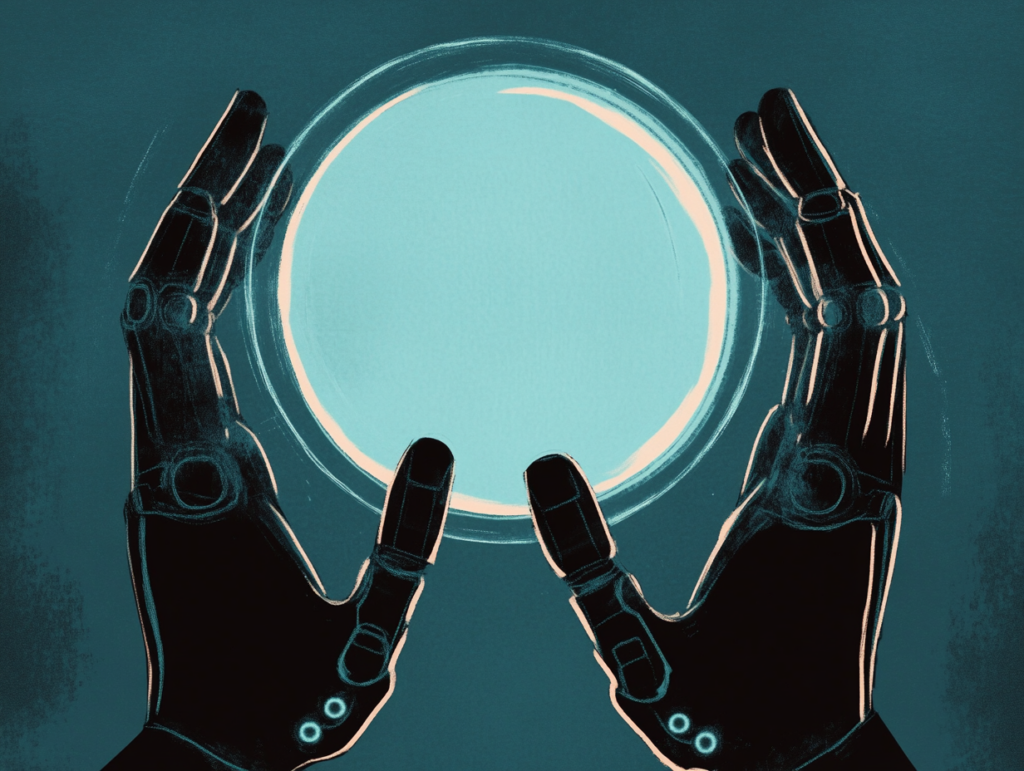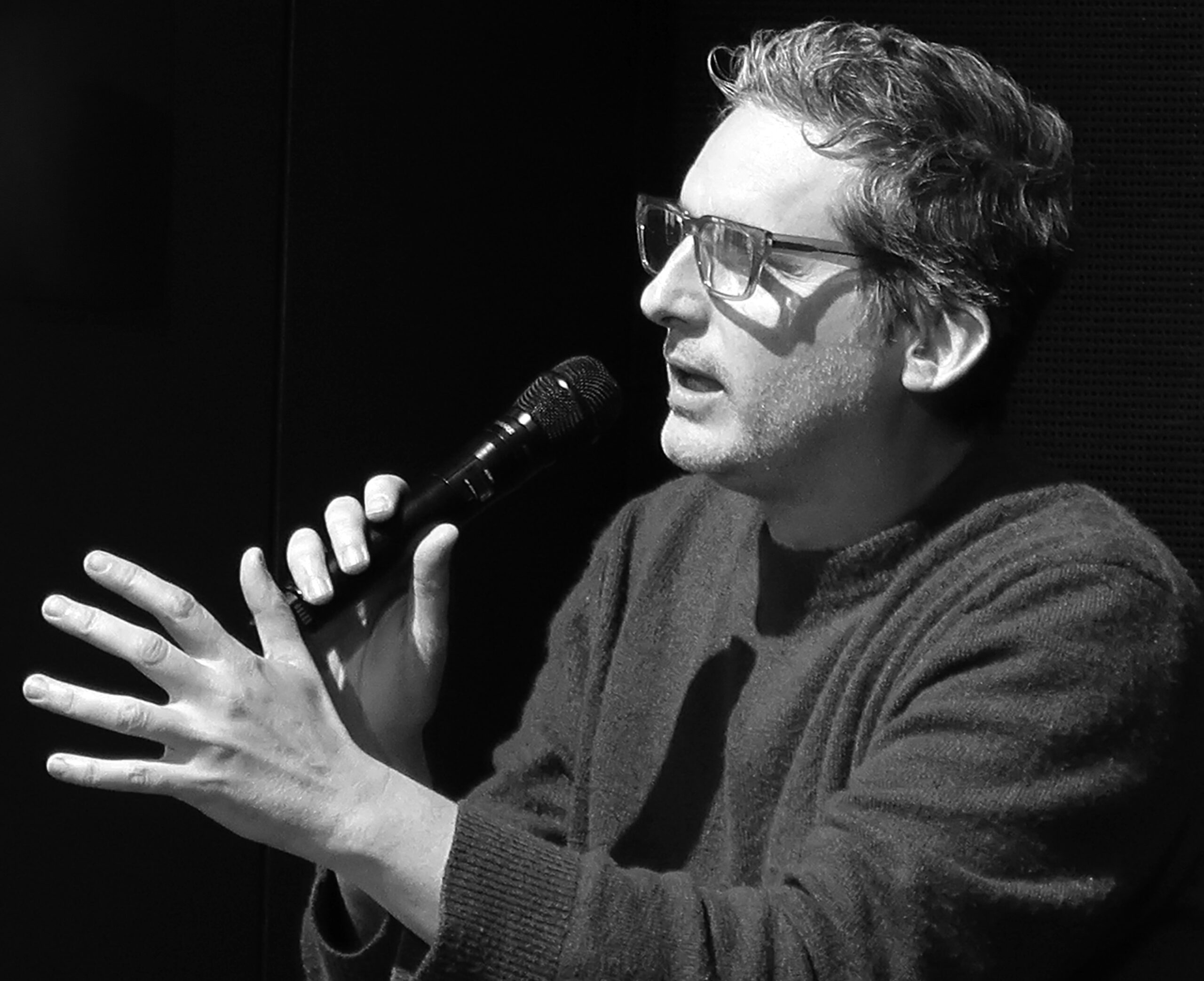Twelve Provocations
About 2025
We do provocations, not predictions.

Editor’s Note: On the last Friday before Thanksgiving, we assembled members and guests for our second annual End of Year provocations call.
Predictions are boring. None of us knows the future and therefore no one cares what you think is going to happen. Your prophecy is as valuable as mine because you're as stupid about the future as me.
Another problem with predictions is that they are designed to benefit the prophet. The end result is either credit or performative humility; either way you win.
Provocations are different. There is no right or wrong, just boring or stimulating. As a result, they can take many more forms: a meaningful question, a firm statement, or ambiguous feeling.
For the second year in a row, ON_Discourse asked members to prepare a provocation - not a prediction - about the year ahead. In 60 minutes, we tackled the following 12 provocations. We hope at least one of these items stirs up a reaction in you, because this call was full of them.
1.
Content is dead. Experience is king.
No one reads. Social posts vanish into the algorithmic void. AI has not democratized quality. It has democratized quantity. Too many creators are stuck in the old paradigm of making more, but more isn't better. Better is better, and the real magic I believe, exists in crafting immersive, adaptive experiences that matter.
This provocation did not go unchecked. It was immediately hit with pushback. "Participation in media requires a seismic change in habits, and most people are too passive for that shift."
2.
Why don’t brands do drugs?
There are no mainstream brands that talk about recreational drugs in any kind of a interesting or fun way. There are all these kind of legal psychedelic things coming up, but they're all medical, and they're really, really boring.
At best you see tangential associations with recreational drug use - see: Snoop Dog at the Olympics - but no brands seem willing to commit to this direct messaging, yet.
Someone noted: "Will Coca-Cola return to its roots?"
3.
AI won’t take jobs; it will take tasks.
AI won't eliminate jobs. That's what most people are afraid of. Still. It will just redefine them, and it's already starting to redefine them by taking over mundane tasks.
This is an optimistic expression that was not shared by some. This reaction says it all: "AI has already started taking jobs. I am seeing it. The first hits are in marketing functions, especially here in the Bay Area, where these big tech companies need to hire more AI tech talent, which is extremely expensive. They're doing that by cutting back on their marketing teams, quite simply, laying off a whole bunch of marketers and having the rest of the folks that are left in those marketing departments use their own AI tools."
4.
Streaming platforms are the new Facebook.
Streaming platforms are doing to Hollywood what Facebook did to publishers. What's happening to the studios is what happened when Facebook did with their famous pivot to video, forcing all these publishers to change their models and bend to the whims of Facebook's massive algorithm. I think the difference here is that there's more than one streaming platform.
Nobody pushed back on this one, so I won't invent an argument. I'll just build on the provocation by emphasizing the cascading effect of this system. The commodification of content is diminishing the operational model in Hollywood.
5.
I want the AI bubble to burst.
Right now, AI equals LLMs and Gen AI, but we will not revolutionize the world by generating words and fake videos. AI is much more than that.
As always, I can't tell you who said this, but I can tell you that this person is a founder in AI technology and the emphasis of looking beyond the LLM version of AI got a lot of people excited by this provocation.
6.
Sam Altman is the new Elizabeth Holmes.
The house that Sam Altman built is actually going to create a lot of mini Elizabeth Holmes; we're entering this unregulated environment where there's just going to be more fraud because general AI literacy is still low.
People in the room wanted to edit this take; the underlying theme landed in the room, but the reference was wrong. "I think FTX and SBF in particular are a better parallel because there is a technology at the foundation has real utility but no regulation yet."
7.
Google will win the search wars.
It's very easy for them to flip the switch from being a search dominant metaphor to a chat based one with ads, in the way that perplexity is trying to get towards. I think Google is going to keep winning, and it's very hard for anyone to compete with them.
This provocation had some pushback, but the most effective reaction came from another participant who agreed. This particular member run an AI service provider and has decades of experience in ML, saying: "Google has the best training data by a billion miles with every single click that everybody's done for every Google search and how long they spent on a page and where they went and what they saw when they were there. That's why their current version of search, with AI summaries, has less hallucinations. It's very rare to get hallucination in their AI search summaries. I think they will continue to crush search just because the data."
8.
AI will break the Gartner Hype Cycles.
I am sick and tired of hearing about people talking about Gartner's hype cycle, and I think that, like hype cycles aren't real. Things do not happen linearly, and I think we need a better framework to talk about what's happening right now.
Most people in the group saw some value in the hype cycle. Others gave Gartner credit with turning a banal observation about technical adoption into an evergreen marketing funnel.
9.
The Trump bump will not return for news companies.
The spectacle that inflated the value of some of the news platforms in the first term is being met with a total exhaustion of interest in news. And so now they have to come up with a way to sort of engage audiences on things outside of that.
News is entertainment and people are switching the channel. What are newsrooms to do in this environment? The bro podcast network came up; so did Jon Stewart and The Daily Show. Nobody knows what happens next.
Are the tired of the content or the outrage? The notion of fatigue kept coming up. Someone summed it up like this: "Outrage fatigue is temporary, but trust, once broken, is permanent."
10.
AI will kill the resume.
Every resume looks perfect, looks the same, every candidate feels the same kind of thing.
Everyone is having a hard time finding talent and reporting back from friends who are having a hard time finding work. The outdated notion of CVs feels like they are starting to break conventions.
11.
LLMs are the NFTs of AI.
I think that the LLM bubble bursting. I think people are realizing that LLMs can take you some of the way there or but then they hit a wall. But the AI bubble is not bursting. People are applying different AI techniques to make AI work properly, so you can use it at scale and trust it.
We have heard this notion repeated in several events. AI is bigger than LLMs and maybe 2025 will be the year we move beyond that aspect of it.
12.
We're all cowards.
I think we're afraid to disagree. I count myself in this by the way. We're afraid to call things out and put ourselves out there.
As one can imagine; people were not ready to embrace this one. A few reactions to it: "I thought that provocation sucked."
We run events every week. If you want to participate, inquire about membership here. If you want to keep up with the perspectives that we hear, you can subscribe to our weekly newsletter.
